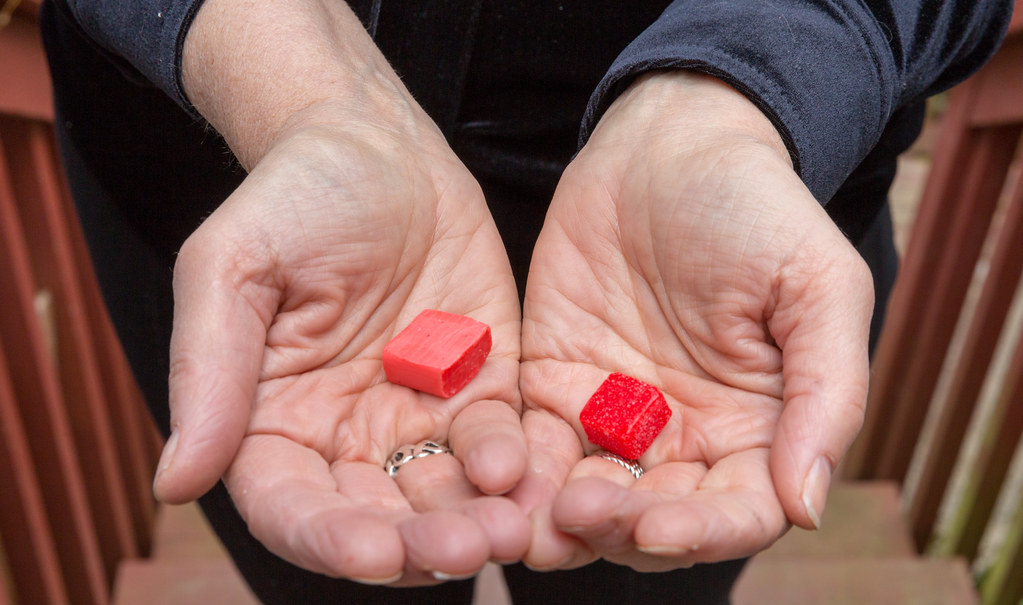
Edibles, drinkables leading Canada’s cannabis market in 2020: Mintel
by CM Staff

A third of non-cannabis users say they are 'open to trying it,' and two-thirds of open non-users are interested in ingestible cannabis, according to the research firm

Edible candies. PHOTO: Amanda Castleman, via Creative Commons
TORONTO — It has been more than a year since cannabis was legalized in Canada and while 2019 sales fell short of most expectations, 2020 is in a much better position to succeed. This is according to market research firm Mintel.
Research from Mintel says that the Canadian cannabis market not only has a significant number of users but potential users as well: six in 10 (59%) Canadians are currently using and/or interested in using cannabis. What’s more, a quarter (27%) of all consumers say they used cannabis in the first six months of legalization (October 2018 – March 2019) and a third (32%) of non-cannabis users say they are ‘open to trying it’.
Among these potential cannabis users (current non-users who are ‘open to it’), edibles are the most intriguing format (48%), including 47% of 20-34-year-olds, 49% of 35-50-year-olds and 48% of those aged 55+. Overall, two-thirds (66%) of open non-users are interested in ingestible (edible and drinkable) cannabis.
Scott Stewart, senior research analyst, Mintel, said in a statement, “The key to future growth for many consumer industries will be to convert more of the consumers who are open to but not current users of cannabis; their hesitance to try cannabis was a contributor to the relatively low sales in 2019, but the legalization of edibles and drinkables in October 2019 will play a major role in 2020’s success. Edibles and drinkables can be a great introductory way for new users to familiarize themselves with cannabis and better understand the cannabis experience, potentially leading to using other forms of the product.”
According to Mintel, while nearly half (46%) of cannabis consumers use it to have fun, an even greater percentage use cannabis as a wellness product. More than half of cannabis consumers use it to relax (62%) and relieve stress/anxiety (54%); meanwhile, two in five use it to improve sleep (42%) and their mood (39%). Also, two-fifths (42%) of open non-cannabis users would consider using cannabis to relieve pain and a quarter (25%) to improve sleep.
As for barriers to usage by non-users, Mintel found that prevalent barriers are the smell (37%), smoke (36%) and health concerns (28%).
When it comes to knowledge about cannabis, the research firm found open non-users are lacking: only 41% of open non-users feel that they are knowledgeable on how to consume cannabis.
Stewart continued, “Our research shows that many Canadians view cannabis as a very complex and intimidating product and the lack of understanding leads many to avoid it entirely. Brands can navigate this by using online platforms and in-store employees to help educate consumers about cannabis. Strict laws around marketing cannabis mean that brands have to be very careful about their approach, but using factual statements to help educate and familiarize potential consumers with cannabis is a good way of establishing a trusted position in the market.”